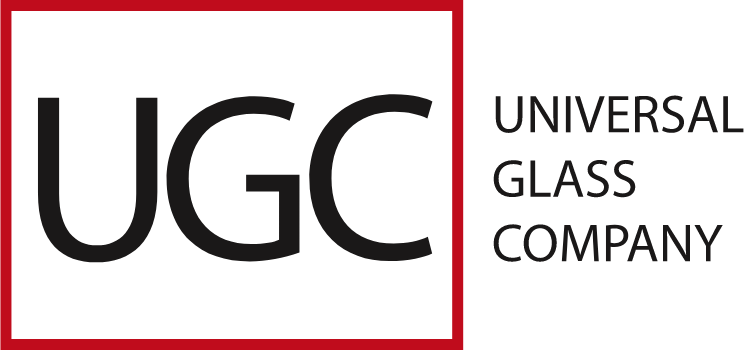Available Positions:
CONTACT US FOR EMPLOYMENT
-
Install architectural glass, framing, and doors, with a focus on safety and quality. Includes communicating with co-workers, participation in safety programs, quality assurance and control, and training as required.
-
Project Support: Assist in developing project plans, including schedules, budgets, and resource allocation, under the project manager’s guidance.
Documentation Management: Prepare, organize, and maintain project documents such as contracts, change orders, permits, and progress reports.
Coordination: Facilitate communication between project managers, superintendents, subcontractors, architects, engineers, and clients to ensure alignment.
Scheduling Assistance: Help create and monitor project timelines, track milestones, and coordinate tasks to prevent delays.
Budget Tracking: Assist in monitoring project costs, reviewing invoices, and reporting potential budget issues to the project manager.
Quality Control Support: Conduct site visits and inspections to ensure work complies with plans, specifications, and building codes.
Subcontractor Oversight: Support coordination of subcontractors, ensuring they meet deadlines and adhere to project requirements.
Issue Resolution: Address minor on-site or administrative issues, escalating complex problems to the project manager for resolution.
Safety Compliance: Assist in enforcing safety protocols, ensuring adherence to OSHA regulations and project-specific safety plans.
Client and Stakeholder Updates: Provide updates to clients or stakeholders as directed, maintaining clear and professional communication.
-
Project Planning: Develop comprehensive project plans, including timelines, budgets, resource allocation, and risk management strategies.
Budget Management: Create and monitor project budgets, track expenses, approve costs, and ensure financial efficiency while minimizing overruns.
Scheduling: Establish and manage project schedules, coordinating tasks and milestones to ensure timely completion.
Team Coordination: Oversee and collaborate with superintendents, subcontractors, architects, engineers, and other stakeholders, assigning responsibilities and ensuring alignment.
Client Communication: Serve as the primary point of contact for clients, providing updates, addressing concerns, and ensuring expectations are met.
Contract Management: Review and negotiate contracts with vendors, subcontractors, and suppliers, ensuring compliance with terms and conditions.
Quality Assurance: Ensure work meets project specifications, building codes, and quality standards through regular inspections and oversight.
Risk Management: Identify potential risks (e.g., delays, safety issues, or budget overruns) and implement mitigation strategies.
Documentation: Maintain accurate records, including contracts, change orders, progress reports, and permits, ensuring all documentation is up-to-date.
Problem Resolution: Address issues such as design conflicts, delays, or disputes, making decisions to keep the project on track.
-
Project Oversight: Manage daily operations on construction sites, ensuring work aligns with project plans, specifications, and schedules.
Team Management: Supervise and coordinate subcontractors, foremen, and workers, assigning tasks and ensuring adequate staffing.
Scheduling: Develop and maintain project schedules, coordinating timelines for various trades to avoid delays.
Quality Control: Monitor work quality, ensuring compliance with blueprints, building codes, and client expectations.
Safety Management: Enforce safety protocols, conduct site inspections, and ensure compliance with OSHA and other regulations.
Resource Coordination: Manage materials, equipment, and tools, ensuring availability and proper use to avoid waste or delays.
Communication: Act as the primary point of contact between project managers, subcontractors, architects, engineers, and clients, providing updates and resolving issues.
Problem Solving: Address on-site challenges, such as delays, conflicts, or unforeseen conditions, and implement solutions quickly.
Documentation: Maintain records of progress, inspections, and incidents, and prepare reports for project managers or clients.
Budget Monitoring: Track labor and material costs to stay within budget, reporting any potential overruns.
-
Administrative Support: Managing schedules, coordinating meetings, handling correspondence, and organizing travel arrangements.
Gatekeeping: Acting as a primary point of contact, screening calls, emails, and visitors to prioritize the executive’s time.
Project Management: Overseeing or assisting with special projects, tracking deadlines, and coordinating with teams to ensure tasks are completed.
Communication Liaison: Drafting and editing communications, preparing reports, and relaying information between the executive and stakeholders.
Meeting Preparation: Creating agendas, compiling briefing materials, taking minutes, and following up on action items.
Confidentiality Management: Handling sensitive information with discretion and maintaining confidentiality.
Office Management: In smaller organizations, EAs may oversee office operations, manage supplies, or coordinate with vendors.
Strategic Support: Conducting research, analyzing data, or providing insights to support decision-making.
Relationship Management: Building and maintaining relationships with clients, partners, or internal teams on behalf of the executive.
Event Coordination: Planning and executing corporate events, board meetings, or retreats.
-
Documentation Management: Prepare, organize, and maintain project-related documents, such as contracts, permits, change orders, invoices, and reports.
Scheduling Support: Coordinate meetings, appointments, and project timelines, managing calendars for project managers or other staff.
Communication Liaison: Handle phone calls, emails, and inquiries, relaying messages between clients, subcontractors, suppliers, and internal teams.
Data Entry: Input and update project data, including budgets, timesheets, material orders, and progress reports, into company systems or software.
Office Management: Maintain office supplies, equipment, and facilities, ensuring a well-organized and functional work environment.
Financial Support: Assist with processing invoices, purchase orders, and expense reports, and track project-related costs under the direction of the project manager.
Meeting Coordination: Arrange and document meetings, including preparing agendas, taking minutes, and distributing follow-up materials.
Client and Vendor Interaction: Greet visitors, respond to inquiries, and maintain professional relationships with clients, vendors, and subcontractors.
General Support: Perform miscellaneous tasks, such as filing, scanning, or organizing project records, to support project managers, assistant project managers, and other staff.
